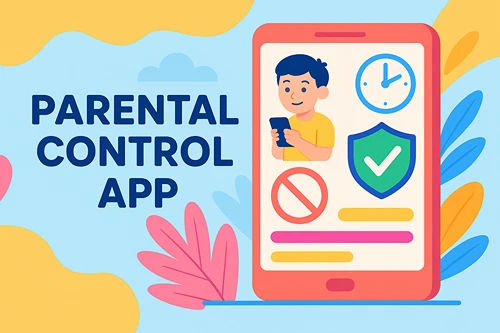3 Smart Budgeting Tips for Parents to Secure Their Family’s Future
There are many responsibilities that come with being a parent, and while day to day tasks like keeping your kids fed and watered might monopolize most of your brain space, money management also needs to be a priority. The good news is that there are lots of ways to get smart about budgeting, and tons of tools and solutions to streamline this process further.
So if you are worried about your finances in the short term, or aren’t sure how to stabilize them in the long term, stick around and you’ll find out about a few fundamental steps that will make a positive difference.
Prioritizing Education Savings Early
Prioritizing education savings starts before your child can say “college”, let alone spell it. To do this:
- Start with a 529 plan for tax advantages. This is effectively an investment-focused savings product that lets you accrue assets over time and then withdraw them to pay for education-related costs, such as college or university tuition fees.
- Consider a Coverdell education savings account (ESA) for broader uses. You can set up as many of these as you like, but there’s a $2,000 annual limit for contributions going towards a single beneficiary.
The main reason to act early is that compound interest makes a massive difference. Even if you only put away $100 a month, by the time high school graduation rolls around you’ll have a very healthy college fund for your little one.
Don’t underestimate state scholarships or financial aid opportunities either. The sooner you start researching additional support, the easier it will be to apply when the time comes if you’re eligible.
If you struggle to stick to savings goals, automation is a great way to keep things on track. Set regular college fund contributions to go out on payday so you don’t even have to think about it.
If you struggle to stick to savings goals, automation is a great way to keep things on track. Set regular college fund contributions to go out on payday so you don’t even have to think about it. Additionally, using some of the top investing apps can help you manage these automated savings more effectively.
Also if you get a cash windfall, such as from a bonus at work or a tax refund, you should direct these funds into your education savings pot. That way you won’t be tempted to splurge, and can do something constructive with a lucky break instead.
Choosing the Right Mortgage Plan for Your Home
Finding a suitable mortgage is an in-depth process, so don’t rush it. With the help of thorough mortgage cost evaluation, it’s much easier to know whether you are on the right track.
There are a few things to think about in this context:
- An adjustable-rate mortgage (ARM) might suit you if you plan to move or refinance in a few years. But it can rise with market fluctuations, so bear this in mind.
- Assess loan terms carefully. A 15-year term typically means higher monthly payments but less overall interest to pay than a 30-year loan.
- Investigate any available local grants or programs supporting first-time buyers.
Also look at the associated costs of home ownership before signing anything. Maintenance expenses, property taxes, and insurance premiums all add up quickly once you’re responsible for everything under your roof! Given that your rent or mortgage payment will be the biggest single expense on your monthly budget, this is a decision that deserves some serious exploration.

Image Source: Pexels
Cutting Unnecessary Expenses
Reducing expenses means more funds to secure your family’s future. And with people putting aside 4.51% of their disposable income in savings on average, even small changes can have a big impact in the long term.
Start by identifying subscriptions or memberships you rarely use, like that gym you joined in January but never visited, or that Netflix account that is gathering dust as the kids favor Disney+.
There are a few other approaches to adopt as well. For instance:
- Meal planning helps prevent impulsive dining out and reduces food waste. Cooking at home not only saves money but also encourages family bonding.
- Monitor utility usage with smart meters or apps to spot energy hogs. Small changes, like switching off lights, can lead to big savings over time.
If you’re really serious about squeezing your budget, buying generic products rather than the big brands can deliver similar quality for less cash. To avoid false economies in this context, compare brands when shopping and consider what features truly matter to you.
Finally, track spending using a budgeting app, so sneaky costs don’t escape notice until too late. Visibility keeps wastefulness from hiding behind vague transactions! Popular options like Plum and Monefy are available free of charge – and most major banks now have apps with similar features integrated, so it’s likely they’re already available to you.
The Bottom Line
Budgeting might seem like hard work, but an hour or two of effort will give you years of benefits. Your family’s future will be brighter if you’re saving for educational expenses, paying off a mortgage that’s affordable, and avoiding unnecessary expenses, so don’t delay these changes any longer!





